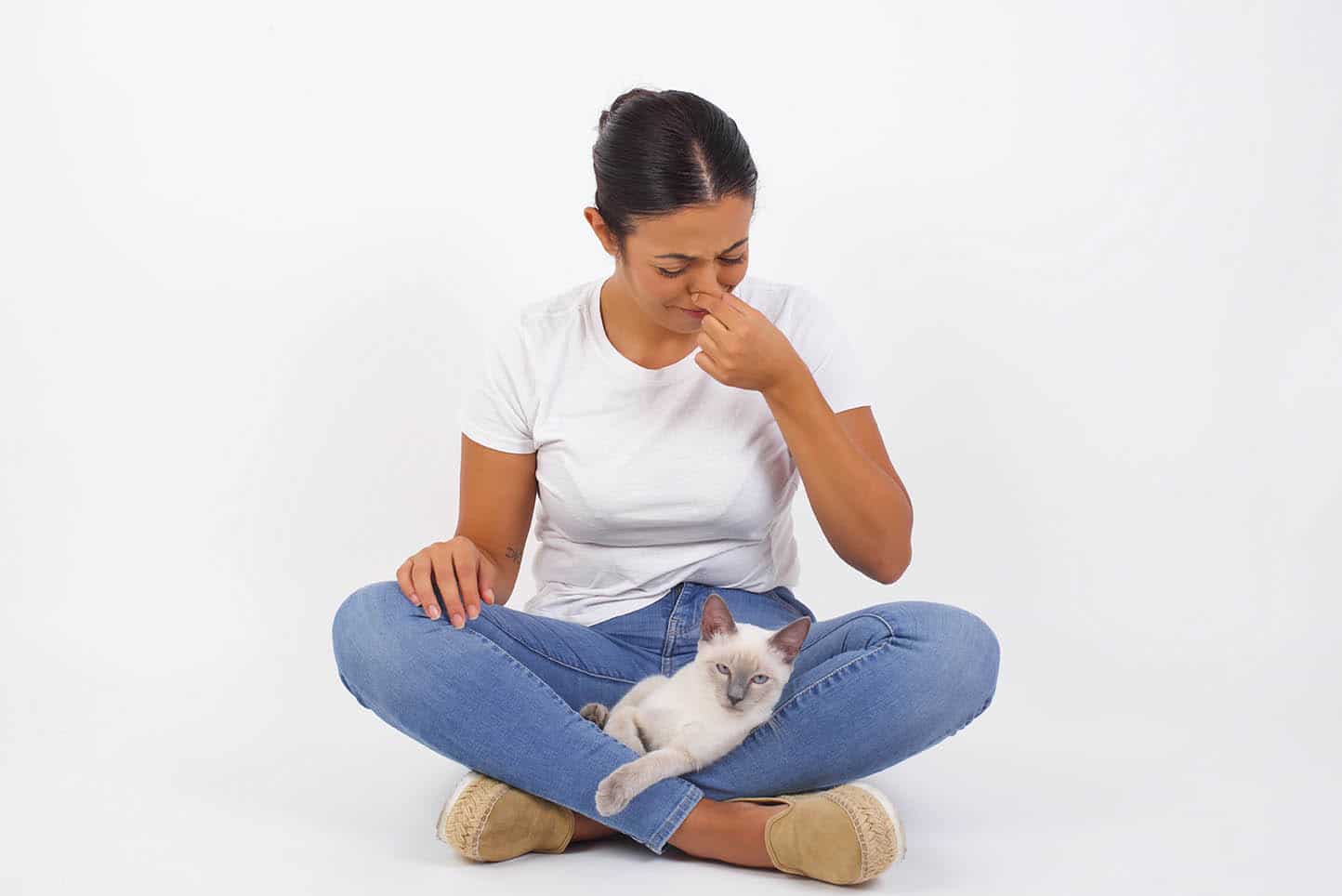Have you ever noticed that your cat’s farts smell like rotten eggs? Is there a way to prevent this unpleasant odor? The smell of rotten eggs is primarily due to sulfur compounds produced during the digestion process. When your cat eats certain foods, especially those rich in fiber or certain types of carbohydrates, their digestion can produce gas that has a distinctive smell.


Causes of smelly farts in cats
Different amounts of gas can accumulate in a cat’s digestive system, and certain factors can play a role in producing smelly farts. Cats with sensitive digestive systems or food allergies are especially likely to produce smelly gases. Some cats have difficulty digesting certain ingredients, which can lead to gastrointestinal upset and gas.
Cats are true carnivores, so their digestive systems are designed to efficiently process animal proteins. Therefore, dairy products, large amounts of carbohydrates or fiber, or low-quality ingredients can cause excess gas and odor.
Many adult cats are lactose intolerant, meaning they have difficulty properly digesting foods containing lactose. As a result, an unpleasant odor similar to rotten eggs may develop. Sudden changes in your cat’s diet can cause indigestion, which can result in smelly farts. Eating spoiled food may also make the sulfurous smell of flatulence more pronounced.
The microorganisms that live in your cat’s intestines can influence gas production. A healthy microbiome can digest food more efficiently, resulting in less gas and pungent odors. Dysbiosis, or microbiome imbalance, can produce more smelly gases as a byproduct of digestion, and you may notice a rotten egg-like odor. Medical conditions such as infections, inflammatory bowel disease, and intestinal parasites can interfere with normal digestion and cause foul-smelling farts.
Other factors can also affect bloating, such as how quickly your cat eats. Kittens that eat their food too quickly may swallow air, which can cause excess gas in the gastrointestinal tract.

How to prevent your cat’s smelly farts
If your cat’s farts continue to be particularly smelly, or occur in addition to vomiting or diarrhea, it may be worth a visit to your veterinarian to rule out underlying disease or poor diet. Particularly helpful in controlling your cat’s diet and ensuring a healthy digestive tract.
Depending on your cat’s age, health, and lifestyle, changing your cat’s diet to include more high-quality protein can help reduce excess gas. All new diets should be introduced slowly over 7 to 10 days to prevent digestive upset. Adding species-specific probiotics can contribute to a healthy microbiome. Serving small, frequent meals each day will aid digestion better than eating large meals all at once.
Play and exercise will help your cat’s digestive system work more efficiently. Aim for two 15-minute sessions per day.


 conclusion
conclusion
A cat’s foul-smelling, rotten-egg-like farts can be caused by a variety of factors, including dietary choices, food intolerances and allergies, microbiome status, and eating habits. Once you understand these factors, you can take appropriate steps to reduce your cat’s foul and potentially embarrassing odors.
Featured image credit: Stanislaw Mitolski, Shutterstock




